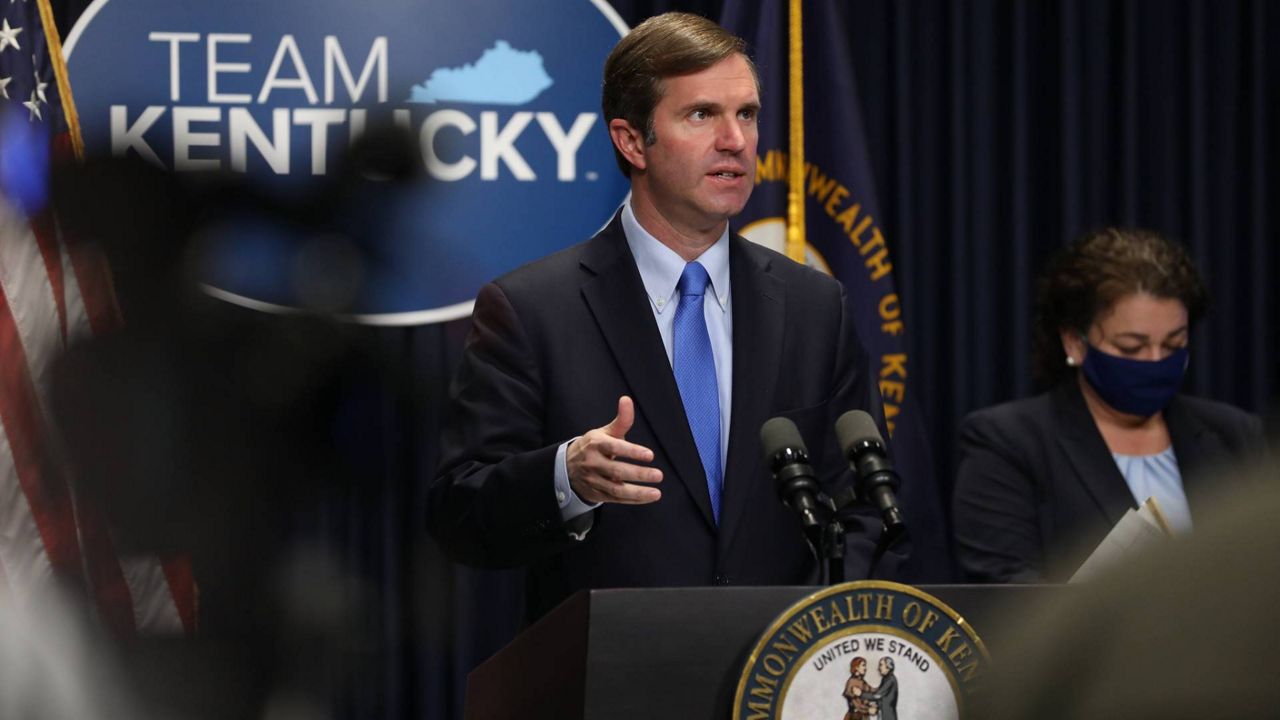FRANKFORT, Ky. — Gov. Andy Beshear has vetoed SJR 150, a measure that would prematurely end Kentucky's COVID-19 state of emergency, citing concerns that millions would lose emergency food benefits.
What You Need To Know
- Gov. Beshear vetoed a Senate resolution to end Kentucky's COVID-19 state of emergency
- Lawmakers previously voted to extend the emergency to April 14
- Beshear said ending the emergency would endanger millions in federal food assistance to Kentuckians in need
- As of February, about 544,000 low-income Kentuckians qualified for SNAP benefits
The joint resolution passed with enough support to override a gubernatorial veto, but Beshear urged lawmakers to "put politics aside and do what's right for our families."
"The only thing SJR 150 does is take food off the table of more than half-a-million hungry or food insecure Kentuckians, mainly children and seniors," Beshear said in a recorded signing of the veto. "My faith and values teach me that is simply wrong."
There are currently no state-wide COVID restrictions and there haven't been any for nearly six months—a point that Beshear has harped on as Republicans worked to advance the measure.
GOP lawmakers had previously voted on their own accord to extend the state of emergency through mid-April.
New COVID-19 cases and hospitalizations are on a steep decline, but the COVID state of emergency ensures Kentucky can receive additional federal funding for crucial things like extra food stamps benefits.
“Ending this state of emergency, cutting $50 million worth of food to our people, is wrong,” Beshear said earlier this week. “And for what? There are no COVID restrictions in Kentucky. None. And there haven’t been for six months. ... They won’t do anything for individual liberty because there isn’t a restriction out there.”
As of February, about 544,000 low-income Kentuckians qualified for the Supplemental Nutrition Assistance Program, or SNAP. Because of the pandemic, the federal government has provided about $50 million more in monthly SNAP benefits to Kentucky.
But the legislature’s action on the resolution would cause the average benefit of $243 a month to drop by about $100. The federal government can only provide the extra benefits to states with an emergency declaration related to COVID-19.



